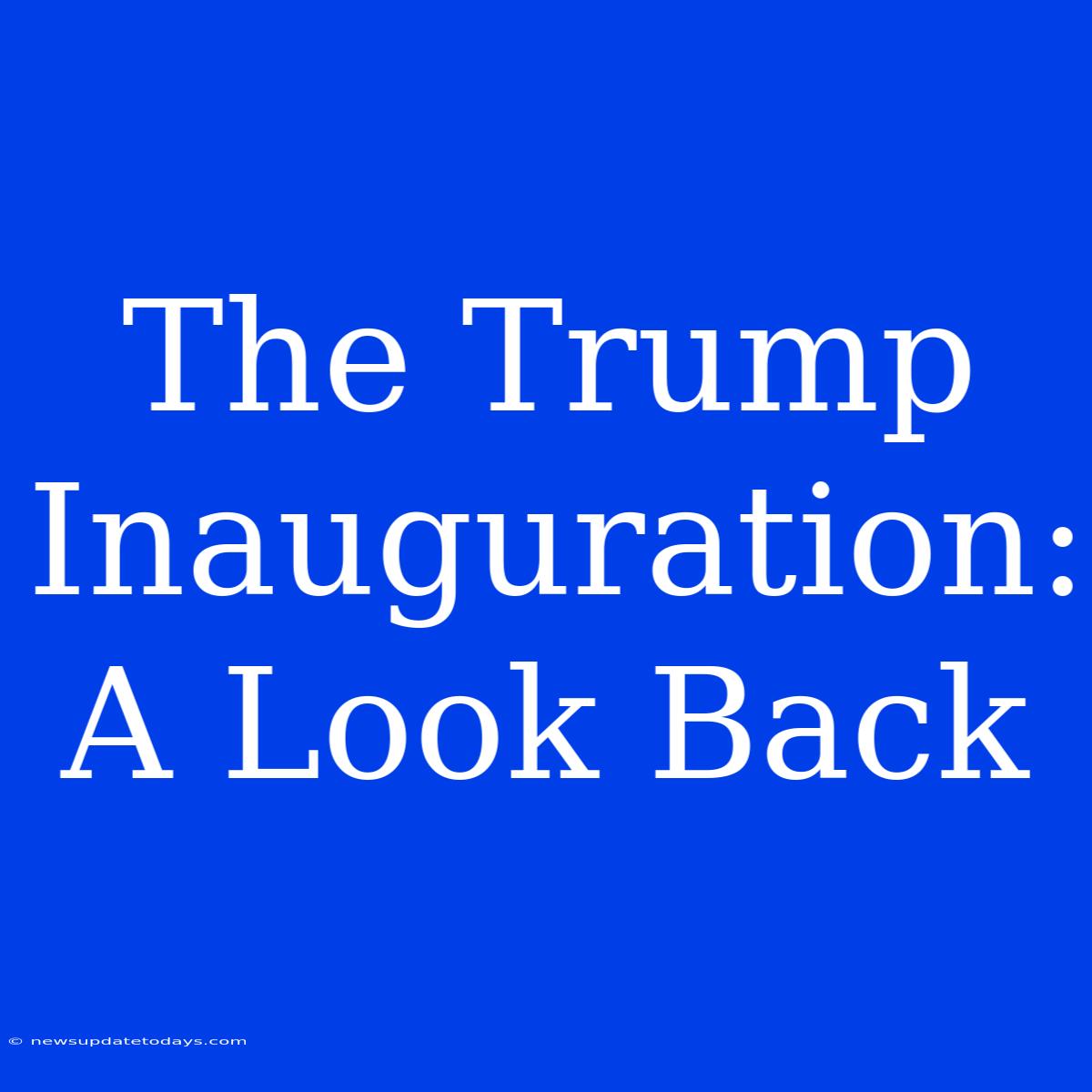The Trump Inauguration: A Look Back at a Divisive Day
The 2017 inauguration of Donald Trump as the 45th President of the United States remains a significant and highly debated event in American history. It was marked by unprecedented levels of political polarization, record-low approval ratings, and controversies that continue to fuel discussion today. This article will delve into the key aspects of that day, exploring the events leading up to it, the inauguration ceremony itself, and its lasting impact on the American political landscape.
A Nation Divided: The Pre-Inauguration Climate
The period leading up to the inauguration was exceptionally turbulent. Trump's victory in the 2016 presidential election had deeply divided the nation, with widespread protests and demonstrations erupting across the country. His campaign rhetoric, often characterized as inflammatory and divisive, fueled anxieties and uncertainties about the future. Claims of Russian interference in the election further exacerbated the political climate, leading to ongoing investigations and intense partisan battles. The atmosphere was thick with tension and a palpable sense of anticipation, both positive and negative, depending on one's political leaning.
The Inauguration Ceremony: A Day of Contrasts
The inauguration ceremony itself presented a stark contrast between the celebratory atmosphere traditionally associated with such events and the underlying political tensions. While Trump's supporters celebrated his victory with fervent enthusiasm, the event was also met with widespread criticism and protests. The unusually low attendance figures at the event, compared to previous inaugurations, further reflected the deep divisions within the American public.
Key Aspects of the Ceremony:
- The Oaths of Office: The formal swearing-in ceremony, presided over by Chief Justice John Roberts, marked the official transfer of power.
- Trump's Inaugural Address: His speech touched upon themes of American nationalism, economic revitalization, and a promise to "Make America Great Again," setting the tone for his presidency. The address was met with mixed reactions, with some praising its populist appeal while others criticized its divisive rhetoric.
- The Performances and Attendees: The inauguration included musical performances and the presence of numerous dignitaries, but the overall atmosphere was noticeably different from previous ceremonies.
Lasting Impacts and Continued Debate
The Trump inauguration had a profound and lasting impact on American politics. It marked the beginning of a presidency characterized by significant policy changes, intense political battles, and ongoing controversy. The events of that day continue to be analyzed and debated, with historians and political scientists offering diverse interpretations of its significance.
Long-Term Consequences:
- Increased Political Polarization: The inauguration solidified the already deep partisan divide, setting the stage for years of intense political conflict.
- Shift in Political Discourse: Trump's rhetoric and policies significantly altered the nature of political discourse in the US, impacting media coverage, public opinion, and the broader political landscape.
- Challenges to Democratic Norms: The inauguration and subsequent events raised questions about the strength of democratic institutions and norms in the face of political upheaval and populist movements.
The 2017 Trump inauguration remains a pivotal moment in American history, a day that continues to shape political discourse and understanding of the nation's trajectory. Its legacy is complex and multifaceted, and its significance will undoubtedly be debated and analyzed for years to come. Understanding this event is crucial for comprehending the present political climate and anticipating future challenges.

